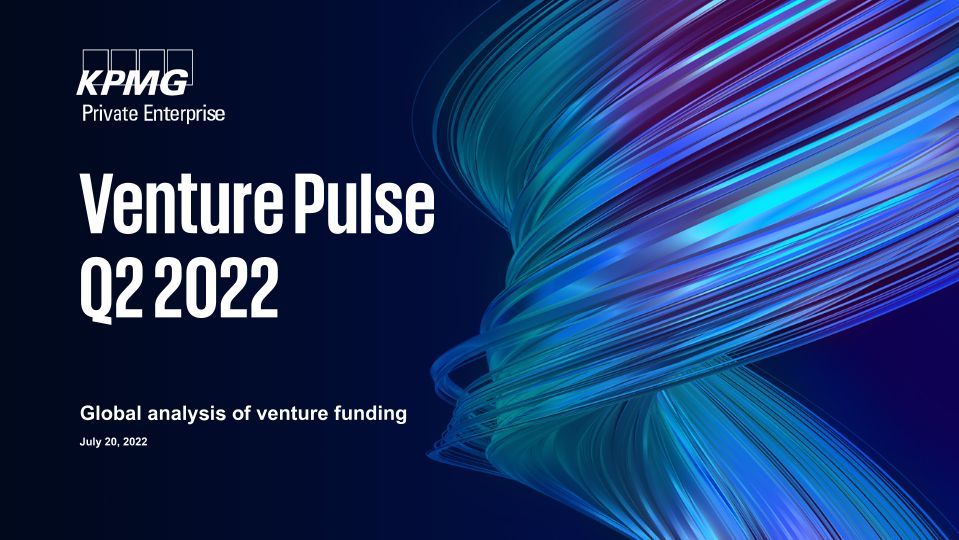Q2’22 saw a decline in both VC investment and the number of VC deals in Europe, driven by increasing geopolitical uncertainties related to the crisis in Ukraine, growing awareness of dependencies on certain raw materials and value chains, and deepening concerns about inflation. During Q2’22, the European Central Bank also announced that it would be raising interest rates for the first time in eleven years on July 1, 2022, followed by an additional hike in September.
Reliance on fossil fuels sparks interest in ESG and alternative energy
While ESG and sustainability solutions have gained traction with VC investors in Europe in recent years, Q2’22 saw interest strengthen considerably as discussions relating to the region’s reliance on fossil fuels grew in the wake of the crisis in Ukraine. In particular, there has been increasing interest in renewable energy-based business models, decentralized energy-based business models, and ESG more broadly — including areas like mobility and cleantech. One of the largest deals in Europe during Q1’22 was a $650 million raise by Switzerland-based Climeworks, a company focused on direct air carbon capture technology.
Declining interest in consumer-business models as inflation remains high
Given rising inflation, increasing interest rates, and other macroeconomic factors, VC investor interest in consumer-driven companies is expected to decline in Europe, particularly in areas like last mile delivery, marketplaces, and e-commerce. While leading startups in different sectors will likely continue to gain attention from investors, others may find themselves facing challenges. This could drive consolidation among startups, in addition to interest from PE investors looking at distressed companies.
VC investment in the UK remains robust
VC investment in the UK continued at a torrid pace for the sixth straight quarter in Q2’22. Fintech remained a hot area of investment this quarter, led by a $626 million raise by SumUp and a $312 million raise by GoCardless. Health and biotech also continued to attract attention, in part because of their resilience to inflation compared to other sectors. Edtech also attracted some attention in Q2’22, led by a $220 million raise by online apprenticeship platform Multiverse — which earned the company unicorn status.
With traditional VC firms in the UK beginning to take a more cautious investment approach, activity from non-traditional investors could increase in niche areas of investment. Heading into Q3’22, the UK could see some high-net-worth individual investors stepping in to help fund Series A and Series B deals that might have been funded by institutional money in previous quarters.
Number of VC deals in Germany drops in Q2’22; VC investment remains solid
VC investment in Germany remained relatively solid in Q2’22, although the number of VC deals dropped considerably. Germany-based VC continued to raise a significant amount of money, including Trade Republic ($1.15 billion), Personio ($470 million), Onefootball ($316 million), Taxfix ($220 million), and 1Komma5 ($219 million) during the quarter.
In the wake of recent uncertainties, companies in Germany have started to reconsider their value and supply chains, looking at where their raw materials and pre-components are produced. This focus is expected to increase over the next quarter as investors and other stakeholders put more pressure on companies to improve the sustainability of their supply chains and reduce reliance on countries with different core values. This could drive an uptick in interest in startups focused on improving niche areas of value chains.
In the wake of recent uncertainties, companies in Germany have started to reconsider their value and supply chains, looking at where their raw materials and pre-components are produced. This focus is expected to increase over the next quarter as investors and other stakeholders put more pressure on companies to improve the sustainability of their supply chains and reduce reliance on countries with different core values. This could drive an uptick in interest in startups focused on improving niche areas of value chains.
VC investment in the Nordics remains solid though the deal count slows
The Nordics is starting to see the effects of a global decline in VC investment and number of deals. Preservation of adequate runway, capital efficiency, healthy unit economics, path to profitability along with dropping valuation offers seems to be in top of mind for many companies. Some companies aiming to raise funding from international investors in order to scale up are now turning to bridge financial instruments like convertibles from existing investors or government-backed financing and in order to survive, achieve better terms and valuation multiples once the market and/or companies performance improves. In sectors B2B software showed resilience compared to consumer retail businesses in Q2’22 with Finland based Aiven leading the way raising $210 million during the quarter. The Deep Tech sector has also remained as a hot area of interest among VC investors.
Trends to watch for in Q3’22
VC investors in Europe are expected to remain cautious heading in Q3’22, increasing their scrutiny of companies looking to attract funding. Given the strong amount of funding available in the market, high quality technology companies are expected to continue to attract funding. Companies that may have attracted funding from optimistic investors in the past, however, will likely face more challenges and require stronger business cases and paths to profitability to attract funding over the next few quarters. Pressure on valuations could also increase the potential for down-rounds and spark interest in the use of downside protections by VC investors.
The IPO market is expected to remain cool in Europe, particularly for consumer businesses and industrial companies whose supply costs are skyrocketing. Valuations will likely also see downward pressure heading into Q3’22

The market is cooling. There’s no IPOs happening in the UK, or really across Europe. There’s no ECM activity either, whether equity or debt. The consumer tech sector seen the biggest slowdown, along with the industrial sector where costs and overhead increases are now coming through. That said, has businesses where growth is outstripping inflation, there’s still a lot of VC money around, and there is still quite a bit of M&A activity
Investment strong in Europe — over $27.3 billion invested on 2,220 deals
Late-state holds strong as investors remain sanguine
Late-stage volume remains healthy
First-time financings slow down; corporates remain active
UK and German VC invested tallies remain healthy
Top 10 deals spread among 6 countries
Key contacts






